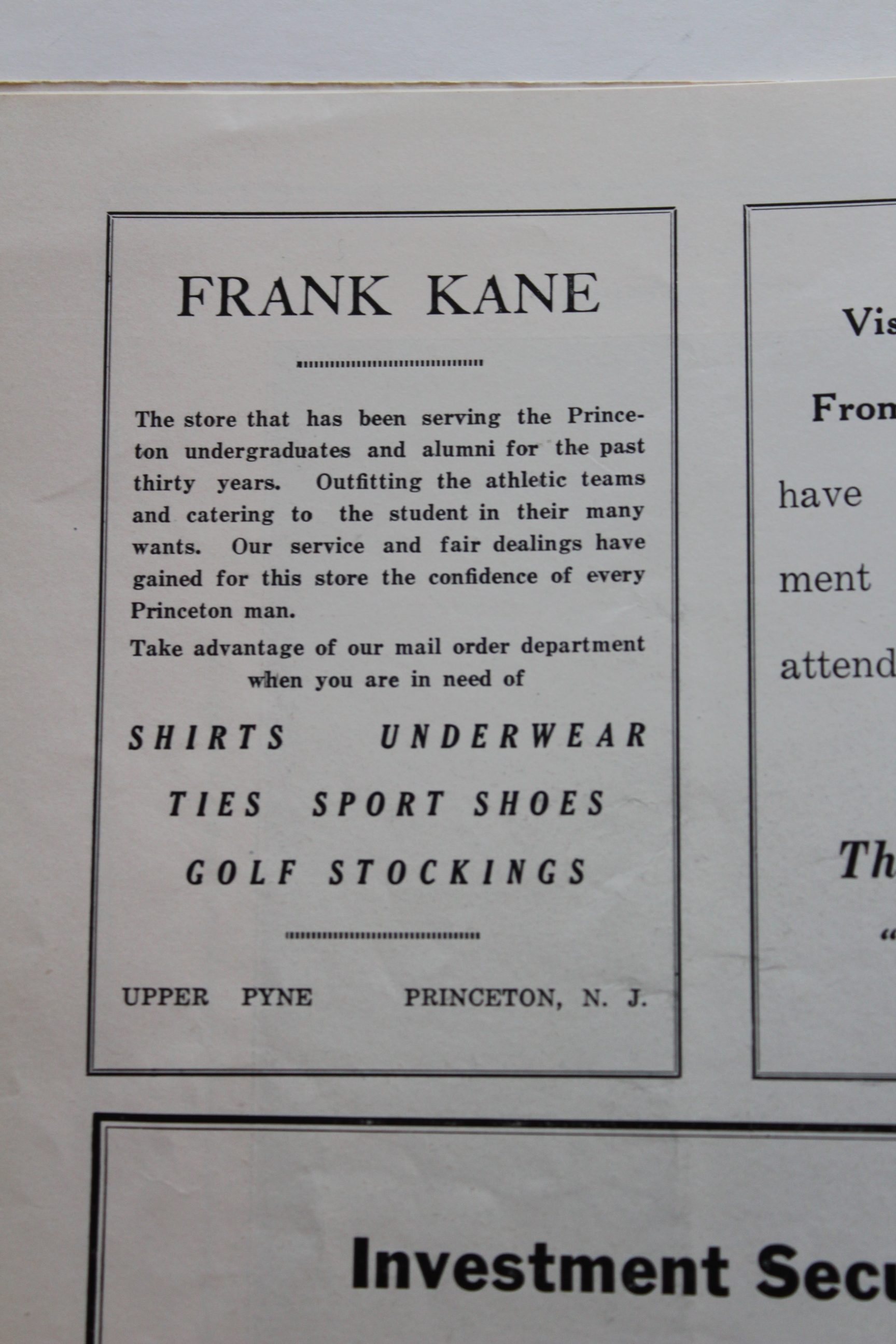Princeton in 1926
11th Feb 2022
The annual Princeton-Yale game was held in Princeton in November 13, 1926 and the vintage program commemorating the game has some fascinating advertisements inside which give a nice insight into what Princeton was like 100 years ago.
One thing that comes through clearly is the focus on men and boys, as Princeton, like many elite schools at the time was for men only. Three of the advertisements assume women don't exist for them.
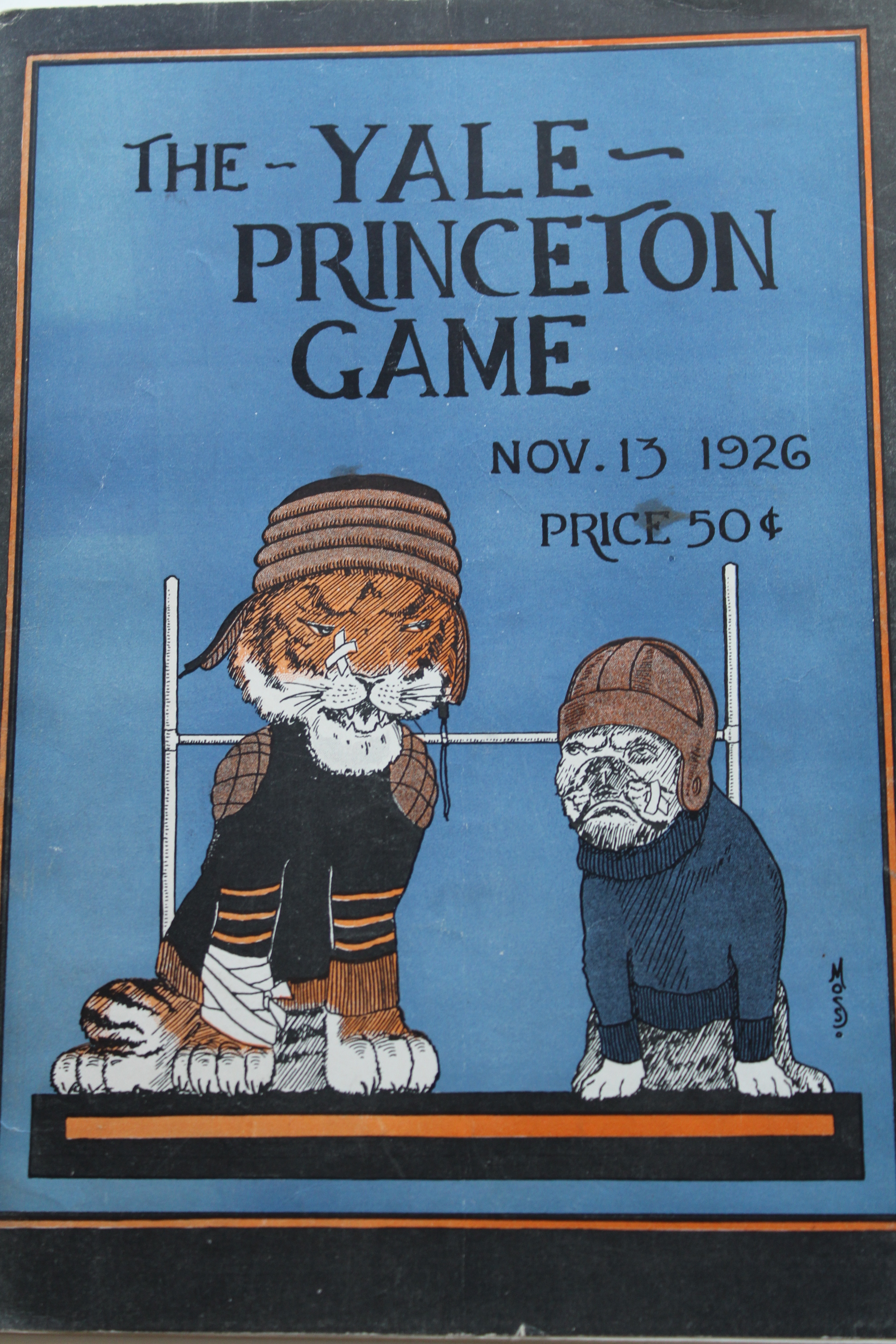
The oddly named Baltimore Daily Lunch restaurant held a prominent location on Nassau Street right across from the University's FitzRandolph Gate. Baltimore Daily Lunch was an early food chain where patrons would order their food at a counter and then take it to a table. By 1921 there were 104 Baltimore Dairy Lunch locations throughout the U.S.
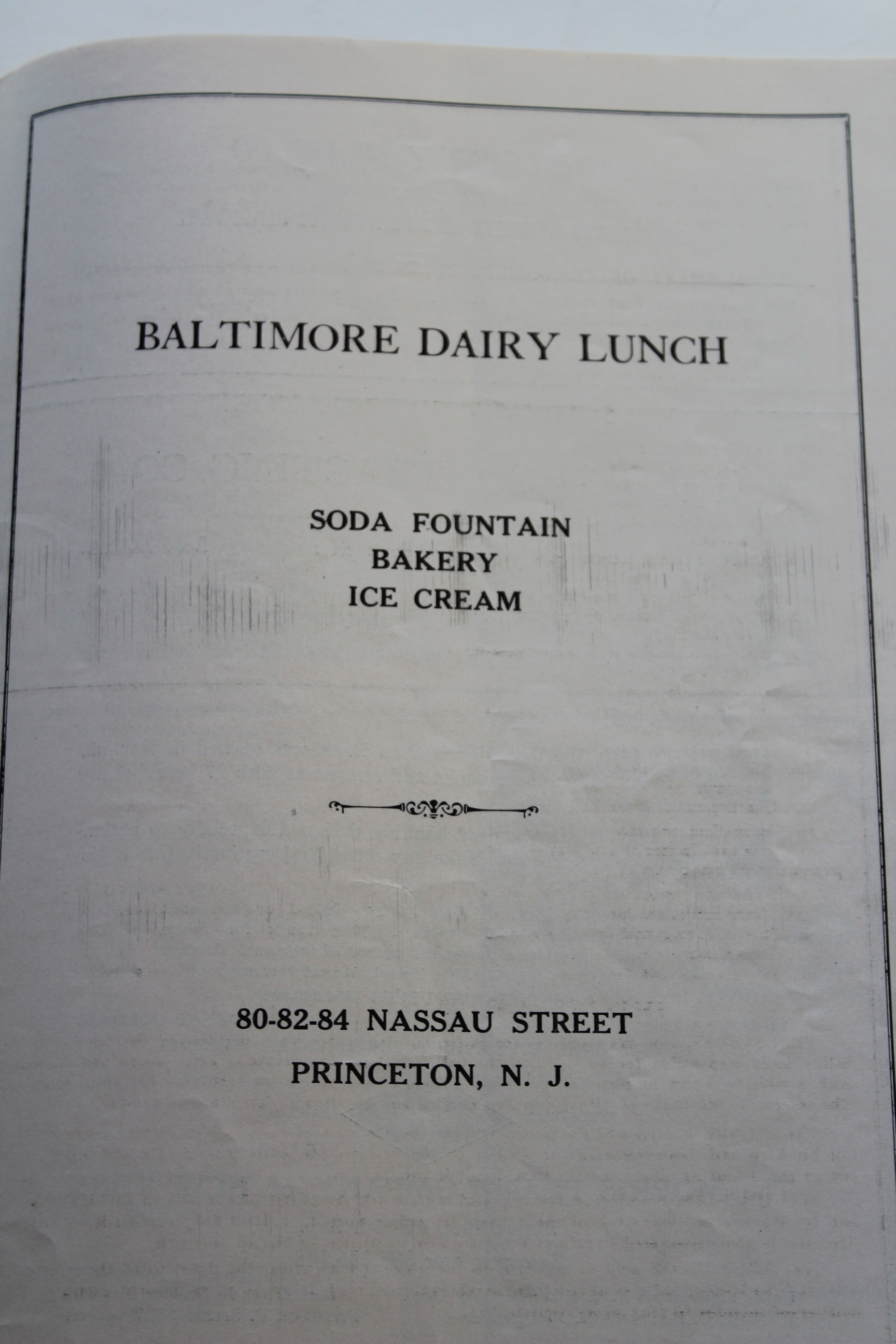
Completed in 1920 and named after a rose garden that used to occupy the location, the Garden Theatre had a prominent ad in the program. The theatre survives on Nassau Street and is today owned by the University, although it isn't necessarily "Where Everybody Goes."
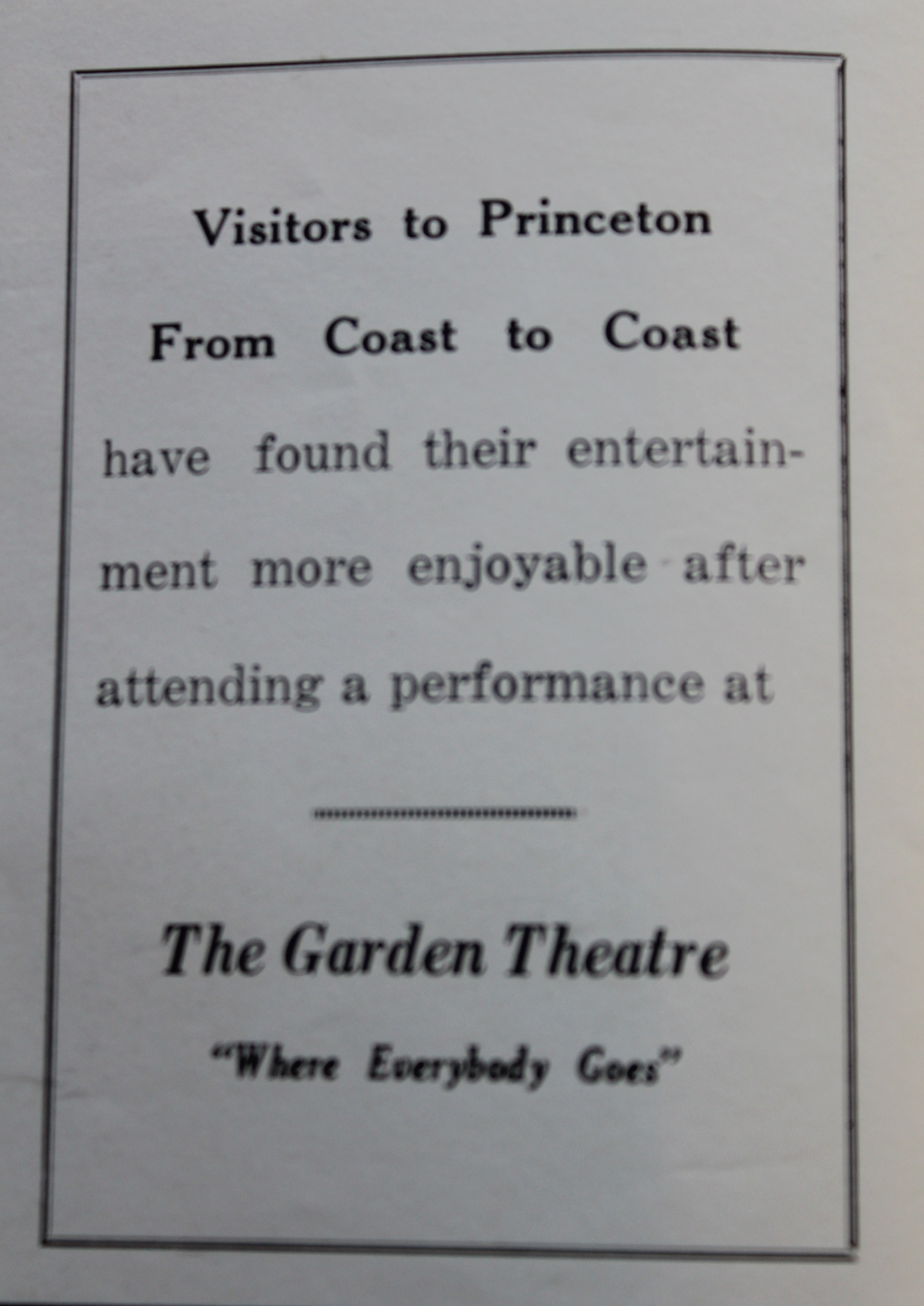
The Hun School was founded was founded in 1914 by Dr. John Gale Hun, a professor at Princeton. The founder's name is featured prominently in the advertisement and their goal was to "prepare boys for the college entrance examinations." One year earlier, in 1925, the school changed its name to the Hun school from the Princeton Tutoring School.
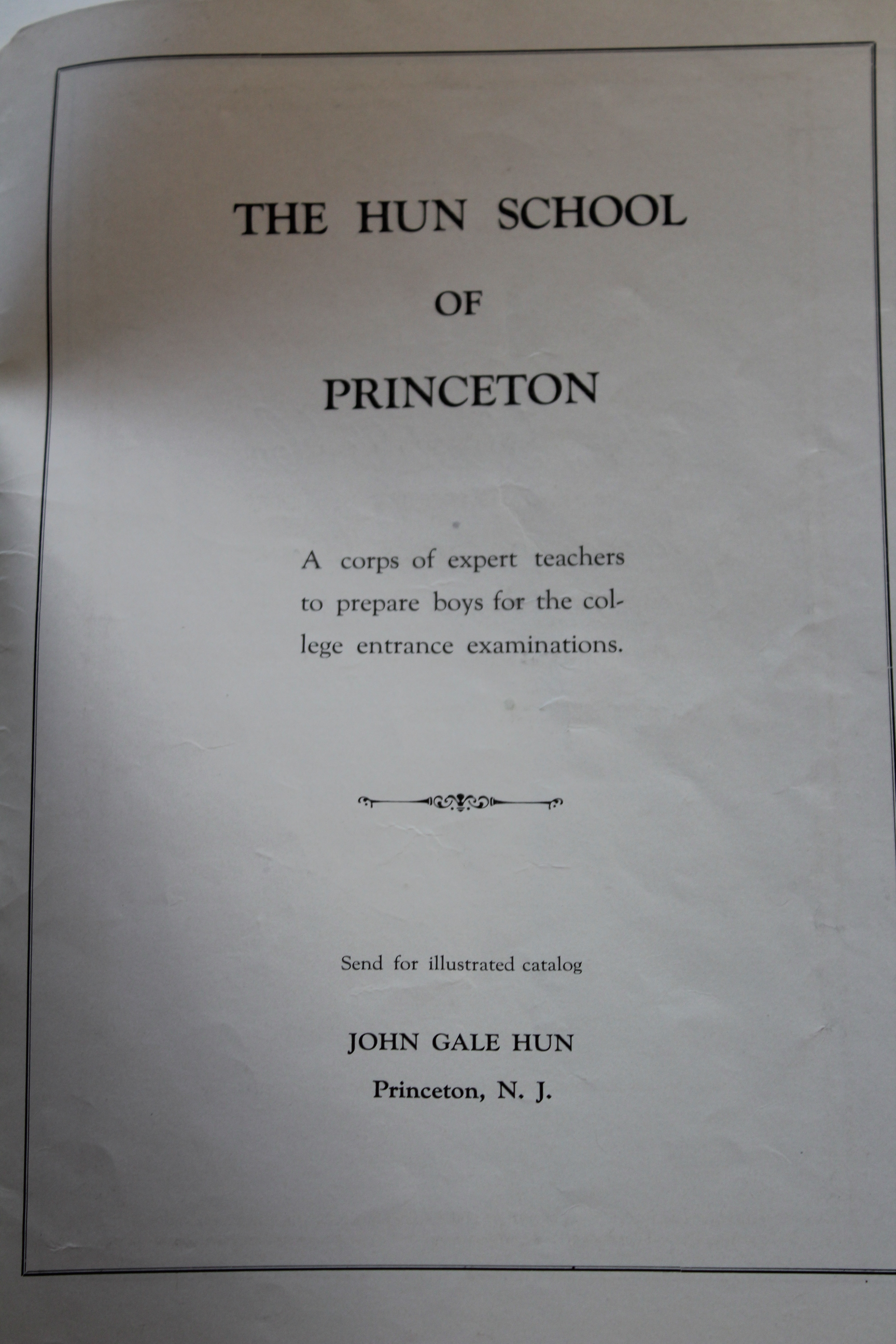
The most insightful ad in the program is for The Music Shop because they give a description of their products. The product that got top billing was a Panatrope, which they describe as the world's first purely electrical reproducing musical instrument. It was the next step after the invention of the "Light Ray" electrical recording. the Panatrope was made by Brunswick. Appropriately, since it was in the middle of the Jazz Age, the store also advertised their new Jazz records including She's Still My Baby and I've got the Girl.
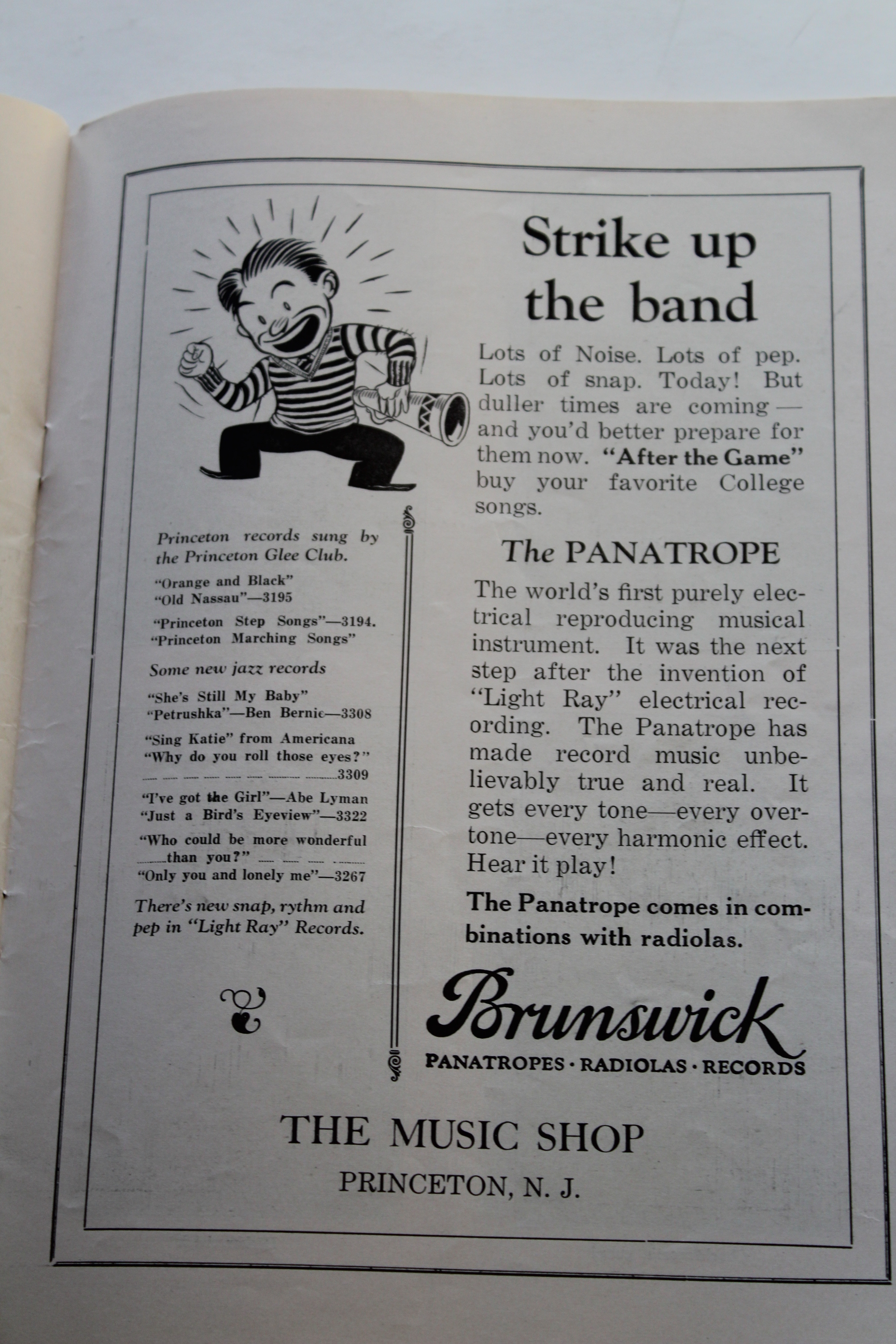
The University Store had a new location in 1926. "Everything the College Man Needs." The new building is West College.
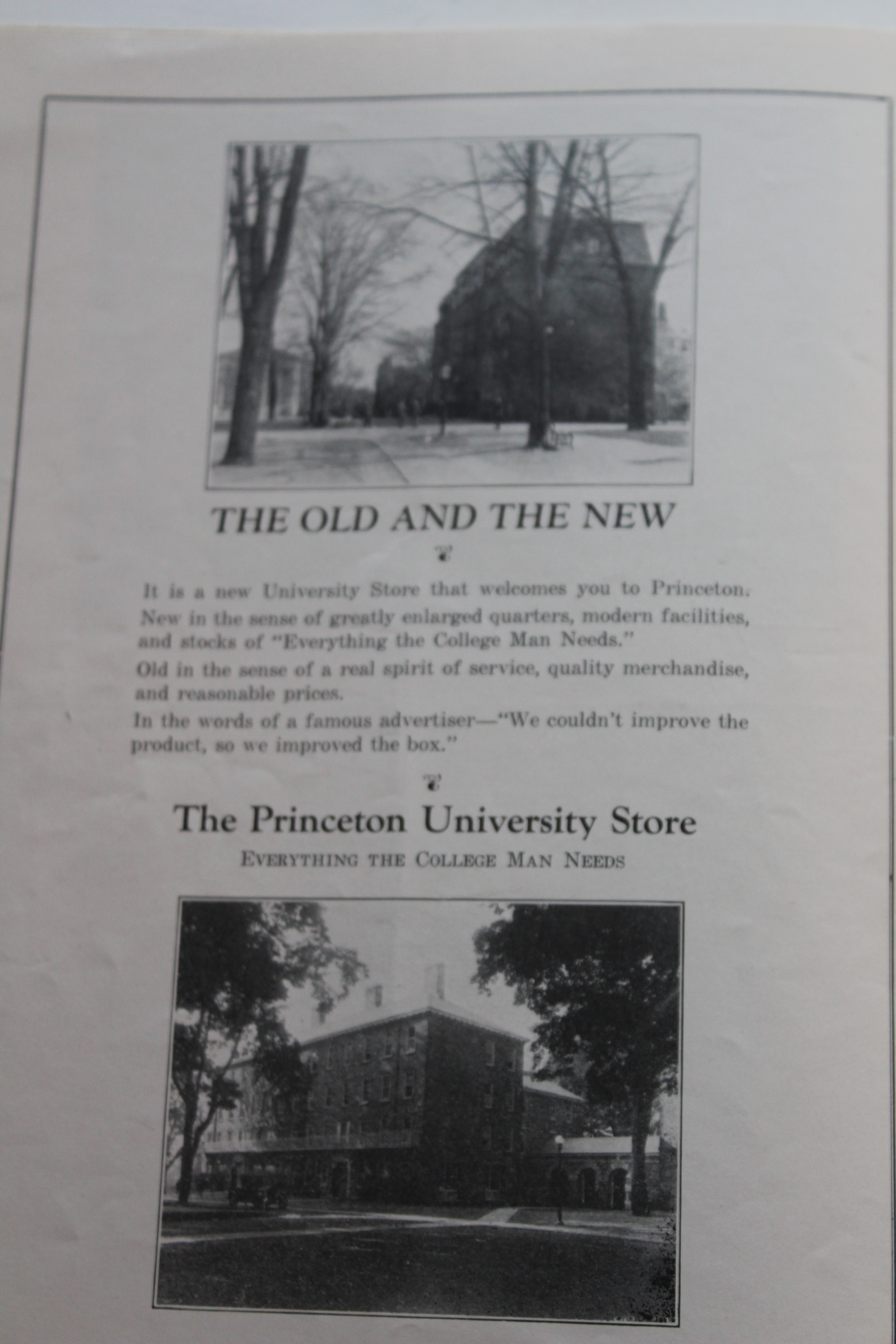
Frank Kane operated an apparel store in Princeton, located on Upper Pyne, across Nassau Street from the campus. The Upper Pyne building no longer exists but the Lower Pyne building stands proudly on the corner of Nassau and Witherspoon Streets today. Both were built in a 16th century English style. Frank Kane was born in Princeton in 1877 and for 20 years he was manager of the Gulick Company, which supplied athletic equipment and uniforms to Princeton teams. He acquired the company in 1920 and operated it under his own name until 1931. "Our service and fair dealing have gained for this store the confidence of every Princeton man."
